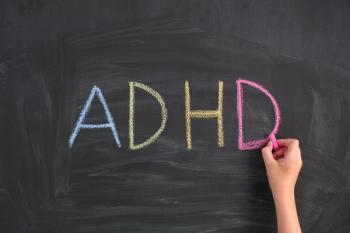
Using programs to tackle mental health problems linked to racial discrimination
Frequent experiences with racial discrimination often leads to negative mental health consequences for Black teenagers. A report examines whether programs meant to enhance caregiving practices could mitigate this association.
Racial discrimination has long-ranging consequences on people who experience it. One of those consequences can be negative mental health outcomes. A
The investigators did a secondary analysis that used data from 2 randomized clinical trials that tested family-centered prevention programs, the Strong African American Families–Teen (SAAF–T) program and the Adults in the Making (AIM) program. Both of the programs were run in community locations that were accessible to the participants in 12 rural counties in Georgia. Both trials recruited Black teenagers and their primary caregivers. The SAAF-T program is a 5-session, 10-hour psychosocial intervention used in families with a Black teenager aged 14 to 16 years. The AIM intervention is a 6-session, 12-hour psychosocial intervention for use in a family with a Black teenager who a high school senior.
The SAAF-T trial had 502 participants with 252 randomized into the intervention group and 250 in the control group. The AIM trial had 367 participants, 187 in the intervention group and 180 in the control group. Both trials had more female participants than male participants. Adolescents in the intervention group in both trials who frequently had racial discrimination experiences were found to have fewer subsequent increased in conduct problems, SAAF-T (incident risk ratio, 0.530 [95% CI, 0.340 to 0.783]) and AIM (mean difference, −0.361 [95% CI, −0.577 to −0.144]). Additionally, teenagers in the AIM intervention group who experienced discrimination had fewer increases in depression or anxiety symptoms (mean difference, −0.220 [95% CI −0.402 to −0.038]). Moderated analyses indicated that an enhanced protective caregiver was at least partially responsible for all of the observed interaction effects (indirect effect: SAAF-T conduct problems, −0.063 [95% CI, −0.127 to −0.001]; AIM conduct problems, −0.048 [95% CI, −0.095 to −0.001]; AIM depression or anxious symptoms, −0.036 [95% CI, −0.074 to 0]).
The investigators concluded that family-centered preventive programs appear to mitigate the link between the frequent exposure to racial discrimination and mental health problems. They also noted that the most of the findings were reproduced across both of the trials.
Reference
1. Brody G, Yu T, Chen E, Miller G, Barton A, Kogan S. Family-centered prevention effects on the association between racial discrimination and mental health in black adolescents. JAMA Netw Open. 2021;4(3):e211964. doi:10.1001/jamanetworkopen.2021.1964
Newsletter
Access practical, evidence-based guidance to support better care for our youngest patients. Join our email list for the latest clinical updates.






